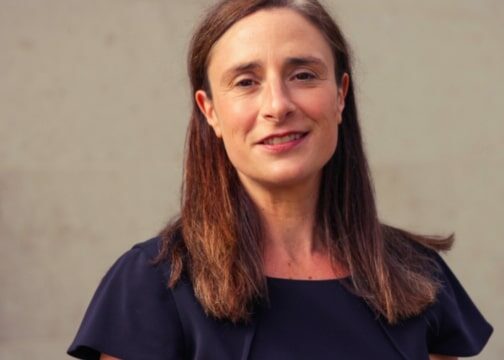The average price of a property coming to the market has seen the first fall this year, down 1.3% in the month to £365,173 (-£4,795), according to the latest house price index from Rightmove.
Prices usually drop in August, and this 1.3% drop is on a par with the average August drop over the past ten years.
Summer holidays are taking priority and some new sellers are pricing more competitively to secure a buyer quickly, to beat the lengthy average time to completion and move home before Christmas.
Demand continues to soften and supply constraints are improving, but there is still a massive imbalance.
Buyer enquiries to agents are down 4% on the hot market of 2021, but remain 20% higher than 2019.
New listings are up by 12% on the same period last year, but are still 6% down on 2019, while available stock is down 39% on 2019.
Latest interest rate rise of 0.5% is putting further pressure on buyer affordability:
Average monthly mortgage payments for new first-time buyers putting down a 10% deposit exceed £1,000 for the first time.
August marks 20 years of Rightmove’s House Price Index, with national average asking prices more than doubling in those 20 years (+134%), from £155,994 to £365,173, outstripping both salaries and general inflation.
Reaction
James Forrester, managing director of Barrows and Forrester:
“The first signs of a cooling market may seem a cause for concern, but the reality is that the herd of homebuyers to have stampeded through the UK property market since the start of the pandemic are simply pausing for breath.
“While market conditions have been far from predictable in recent months, we’re now seeing a return to the regular seasonal trends and patterns that appear each and every year, with the peak summer months always a traditionally quieter time.
“Once the chaos of the school summer holidays has come and gone, market momentum will return in the run up to the Christmas period.”
Marc von Grundherr, director of Benham and Reeves:
“The increasing cost of both buying and borrowing has started to dampen the insatiable appetite of the nation’s buyers ever so slightly. When coupled with the fact that the drought of new homes entering the market is now starting to ease, a marginal reduction in asking prices was always going to materialise.
“London continues to present a mixed picture. While the capital’s property market has largely struggled to regain any meaningful level of momentum, it’s important to note that the performance of individual boroughs is as diverse as the wider regional outlook.
“While some boroughs, such as Barnet, have seen notable monthly declines, other more peripheral boroughs are enjoying strong and sustained rates of monthly and annual price growth.”
Colby Short, co-founder and CEO of GetAgent.co.uk:
“Although it may seem a long way off, Christmas is really just around the corner for those hoping to be carving their Christmas turkey in a new home. With buyers no longer acting with the same desperation to secure a home, those looking for a quick sale are having to price more realistically in order to entice them into a purchase.”
Chris Hodgkinson, managing director of HBB Solutions:
“The first signs of a cooling market where seller expectation is concerned provides further evidence that the market is now starting to turn. While we’re a world away from a property market crash, those looking to sell are best advised to price appropriately based on their local market conditions.
“Failing to do so will see their home sat for sale with little to no interest for months on end. Those looking to sell their home quickly must accept and adapt to the fact that it’s no longer the sellers market it was just a few months ago.”
Jonathan Samuels, CEO of Octane Capital:
“All things considered, the market remains in fine health, but the mortgage sector is currently very unsettled following a sixth consecutive base rate hike and the largest in over a quarter of a century.
“There’s no hiding the fact that this will have a direct impact on the borrowing ability of the nation’s homebuyers which, in turn, will impact the price they are willing to pay for a property.
“So while this may be the first drop in asking prices seen so far this year, it’s certainly not going to be the last.”
Almas Uddin, founding director of Revolution Brokers:
“We’re now seeing what was a previously overheated property market start to slow, along with a return to what can historically be considered normalised interest rates.
“For the nation’s sellers, this means a slightly more pragmatic approach when pricing their property. Unfortunately, for the nation’s homebuyers, it means the monthly cost of a mortgage has already climbed quite considerably and this cost is likely to keep on climbing throughout the remainder of the year.”

Tomer Aboody, director of property lender MT Finance:
“While the current period of slowdown in the market can be attributed to the holiday period, the impact of the latest interest rate rise, along with further potential increases on the horizon, is undoubtedly preying on buyers’ minds.
“A reduction in house prices will raise concerns among buyers regarding the risk of purchasing at the absolute peak of the market. There may be concerns about the potential of negative equity in a couple of years when they come to refinance.
“With higher inflation adding to buyers’ concerns around affordability, would-be sellers are slowly reducing asking prices or taking lower offers.
“Although the market has slowed, this is all relative as prices are still at record levels due to the crazy market conditions of the past couple of years.”
Jeremy Leaf, north London estate agent and a former RICS residential chairman:
“The only surprise about these figures is that the drop in asking prices has taken so long to show up after we noticed a reduction in buyer and seller activity ‘on the ground’ a few months ago.
“Summer holidays are also proving a distraction with many decision makers taking advantage of the fine weather here and abroad.
“But the market is also baring its teeth and demonstrating familiar resilience. Lack of choice, low unemployment and increasing rents are continuing to support demand.
“Therefore, no significant change in property prices is expected at this stage despite increasing concerns about the rising cost of living and interest rates.”
Nathan Emerson, CEO of Propertymark:
“House prices remain high, and this trend is set to stay that way in the short-term. There continues to be a large imbalance of buyer demand to housing stock levels, but the market is sustaining itself.
“As we have seen much of during the pandemic, the lifestyles of many buyers continue to change meaning homes in more rural locations are still seeing high levels of activity and the prices achieved.
“The property market will undoubtedly still see the gradual impact of the increases to the cost of living and interest rate rises which play a key factor in affordability. This should start to bring activity to a more even keel towards the end of the year.”

Sarah Coles, senior personal finance analyst, Hargreaves Lansdown:
“The summer season has pushed asking prices off the end of the pier. Optimistic sellers have been forced to face the fact that the market isn’t as hot as they’d hoped, and have been cutting asking prices for the first time in 2022. It’s not unusual for the time of year, but it’s unlikely to be the last of it.
“Rightmove said that a fall of this size was common at this time of year. More people tend to put their property on the market in the summer, and if they haven’t sold by now, they take stock. A sale tends to take just over four months and they want to sell by Christmas, so they know that now is the time for a cut.
“However, there are plenty of signs that this won’t be the last of the falls in asking prices. Buyer numbers are still a fifth higher than pre-pandemic levels, but they’re dropping. The RICS survey published last week also highlighted that these aren’t the same kinds of buyers as we saw during the boom. They’re more cautious, more sensitive to what’s going on in the wider world, and are more likely to pull out of sales because of rising prices, increasing rates and more job insecurity.
“It also found that even when an asking price doesn’t move, buyers may have to accept lower offers to shift a property – particularly at the more expensive end of the market. It means the drop in the prices being accepted by sellers may be even bigger than the official cut in the asking price.”




